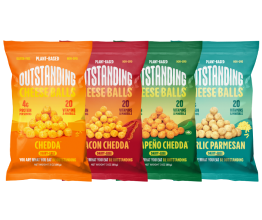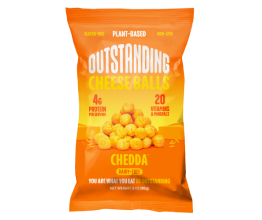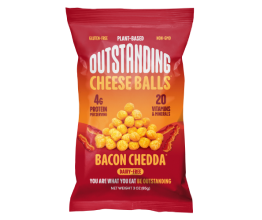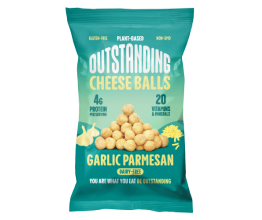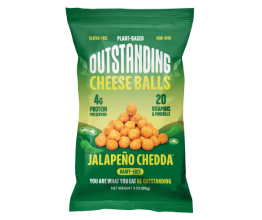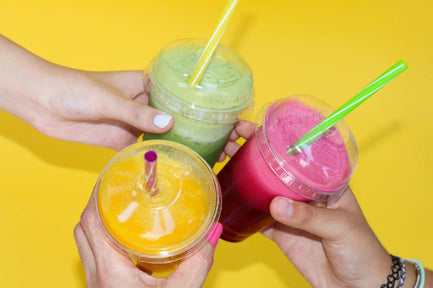FAQs About Taking the Plant-Based Plunge & How to Answer Them
As many former meat-eaters can attest, going plant-based often means answering a lot of questions from those around you. Most of those people mean well (emphasis on most), but it can still be annoying to hear the same questions over and over again, especially if you aren’t sure how to answer.
So before you roll your eyes for the thousandth time, consider the silver lining to being asked the same questions repeatedly: You just have to find an answer to each of those questions once, and you’re set. And in the process, you’ll find that you learn more for yourself about the perks of a plant-based lifestyle!
Ready to get started? Here’s how to answer the most common questions about going plant-based.
Where Do You Get Your Protein From?
Growing up, a lot of people are taught that protein equals meat and meat equals protein. So when you say you’re going plant-based, your friends may picture you loading up on tofu for every meal or settling for tasteless meat alternatives made with questionable ingredients.
Debunk that mental image by informing them of the many plant-based protein options out there, including:
— Soybeans and soy protein products (including but not limited to tofu)
— Beans
— Lentils
— Nutritional yeast
— Peas
— Oats
Let’s be real, protein is an essential nutrient, and where it comes from is an important thing to think about. What’s more, as a plant-based, you do need to make sure you’re getting enough protein from plant-based sources.
That’s why we made a point of packing our own plant-based snacks (like, for example, our Outstanding Cheese Balls) with hefty servings of plant-based protein.
Isn’t Being plant-based Expensive?
Maybe the cost of going plant-based is making your friends and family worry about the sustainability of your choices. Heck, maybe that’s even the one thing holding some of them back from going plant-based themselves. Either way, the simple answer here is: Going plant-based can be expensive, but it doesn’t have to be.
Yes, special plant-based products from the supermarket are usually more expensive than their animal-based counterparts. But switching to a plant-based whole food diet and cutting out the processed foods entirely can actually save you on grocery money in the long run.
What Do You Actually Eat? Do You Just Eat Carbs?
Once again, this question stems from the misconception that going plant-based means you just subtract all animal products from your diet and call it a day. Not so. (Unless that is what you did, in which case, you’re doing it wrong.)

Switching to a plant-based diet is about substituting, not subtracting. As a plant-based, you’re replacing those animal-based products with plant-based ones that still give you the nutrients you need.
You may even find yourself exploring new types of foods — especially grains, vegetables, legumes, etc. — that you never would have considered as a meat-eater. And yes, low-carb plant-based foods abound.
Why Do You Eat Meat Alternatives & Not the Real Thing?
There are two big points to make to anyone who asks you this question:
— Each person has their own reason for going plant-based, ranging from wanting to eat healthy to caring for the environment. Your “why” will be as unique as you are.
— Calling meat “the real thing” insinuates that all meat alternatives are fake, processed junk. That’s untrue — and a bit insulting.
Once again, point the people asking this question to all of your favorite plant-based protein sources — and don’t forget to mention the specific reason(s) you personally eschew animal products.
If you really want to convince them, invite them to try a plant-based meal or snack made with whole food ingredients so they can taste for themselves. One bag of our Pig Out Crunchies, for instance, might just make them question their previous loyalty to the far less-healthy pork rinds.
Can’t You Just Eat Free-Range Products Instead?
Okay, so you’ve almost convinced your curious friend that a plant-based diet is better for you and the environment than a typical meat-eater’s diet. They just have one question left: What about free-range products? Aren’t those better than other meats, eggs, and dairy products? Why not just eat those instead of going plant-based?
Here’s the thing: Contrary to popular belief, “free range” on the label doesn’t necessarily translate to cruelty-free. In fact, there’s little to no regulation on what “free range” even means — so the chickens who laid those free-range eggs may still spend the majority of their days in a miserable, crowded environment.
While some free-range products may have better nutritional value than other animal-based products, there’s no guarantee that will be the case. But when you stick to a sustainable, nutrient-rich, plant-based diet, you can be sure that what you’re eating is good for you and for the planet.
Going plant-based Just Makes Sense
In a perfect world, by the time you finish answering these questions, your friends and family will be happily joining you in going plant-based and eating healthier in general. This isn’t a perfect world, though, so we can’t guarantee those results.
But the more prepared you are to answer questions about why you’re going plant-based and what your diet will look like going forward, the more confidence you’ll have when speaking about your choices — and the more you’ll be able to help others understand why you’re making those choices.
Want more tips on living a healthy lifestyle? Follow us on Instagram and Facebook.